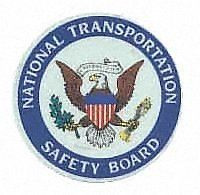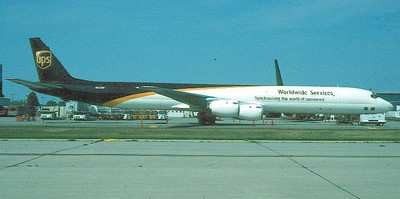Tue, Jan 08, 2008
Wants Greater Access, Dissemination Of Information On Safe
Transport
 The repercussions continue from a February 2006 in-flight fire onboard a
United Parcel Service Company (UPS) DC-8 cargo
aircraft, strongly believed to have been caused by
rechargeable lithium batteries. On Monday, the National
Transportation Safety Board issued two new recommendations
regarding proper transport of those batteries, which are used in a
variety of electronic equipment.
The repercussions continue from a February 2006 in-flight fire onboard a
United Parcel Service Company (UPS) DC-8 cargo
aircraft, strongly believed to have been caused by
rechargeable lithium batteries. On Monday, the National
Transportation Safety Board issued two new recommendations
regarding proper transport of those batteries, which are used in a
variety of electronic equipment.
The NTSB made the following recommendations to the Federal
Aviation Administration, and the Pipeline and Hazardous Materials
Safety Administration:
- In collaboration with air carriers, manufacturers of lithium
batteries and electronic devices, air travel associations, and
other appropriate government and private organizations, establish a
process to ensure wider, highly visible, and continuous
dissemination of guidance and information to the air-traveling
public, including flight crews, about the safe carriage of
secondary (rechargeable) lithium batteries or electronic devices
containing these batteries on board passenger aircraft.
(A-08-1)
- In collaboration with air carriers, manufacturers of lithium
batteries and electronic devices, air travel associations, and
other appropriate government and private organizations, establish a
process to periodically measure the effectiveness of your efforts
to educate the air-traveling public, including flight crews, about
the safe carriage of secondary (rechargeable) lithium batteries or
electronic devices containing these batteries on board passenger
aircraft. (A-08-2)
While noting a definite cause of the UPS fire wasn't determined
in its investigation, the NTSB says the presence of a significant
quantity of electronic equipment in the containers where the fire
most likely originated led the Safety Board to closely examine
safety issues involving the transportation of rechargeable lithium
batteries on commercial aircraft, including batteries in airline
passengers’ laptop computers and other personal electronic
devices.
The recommendations are the latest federal action on the
transport of lithium batteries onboard aircraft. As ANN reported, the
Department of Transportation implemented new safety rules on
January 1, stating passengers will no longer be able to pack loose
lithium batteries in checked luggage. The new regulation, designed
to reduce the risk of lithium battery fires, will continue to allow
lithium batteries in checked baggage if they are installed in
electronic devices, or in carry-on baggage if stored in plastic
bags.

In December, the NTSB issued a safety recommendation calling for fire-suppression systems to be
installed onboard all Part 121 cargo aircraft --
saying such systems may have prevented the DC-8 from catching fire
after landing, and burning to the ground.
More News
Its Offerings Are Lighter, Cleaner, and Now Pushing Past 1,000nm on SAF Jet Fuel DeltaHawk’s diesel-powered aircraft lineup has seen incredible upgrades over the last few yea>[...]
The Airplane Experienced A Total Loss Of Engine Power On December 3, 2025, about 1600 central standard time, a Mooney Aircraft Corp. M20K, N57229, was substantially damaged when it>[...]
Make Sure You NEVER Miss A New Story From Aero-News Network Do you ever feel like you never see posts from a certain person or page on Facebook or Instagram? Here’s how you c>[...]
Aero Linx: European Society of Aerospace Medicine (ESAM) As a pan-European, independent forum, it works to promote the safety and health of all persons involved in aviation and spa>[...]
“We are excited to see Wisk achieve this milestone, and I’m so proud of the team that made it possible. The team at Wisk has built advanced technologies across flight c>[...]
 Aero-TV: DeltaHawks Diesel Power Steps Into the Spotlight
Aero-TV: DeltaHawks Diesel Power Steps Into the Spotlight NTSB Prelim: Mooney Aircraft Corp. M20K
NTSB Prelim: Mooney Aircraft Corp. M20K ANN FAQ: Turn On Post Notifications
ANN FAQ: Turn On Post Notifications ANN's Daily Aero-Linx (12.20.25)
ANN's Daily Aero-Linx (12.20.25) Aero-News: Quote of the Day (12.20.25)
Aero-News: Quote of the Day (12.20.25)




